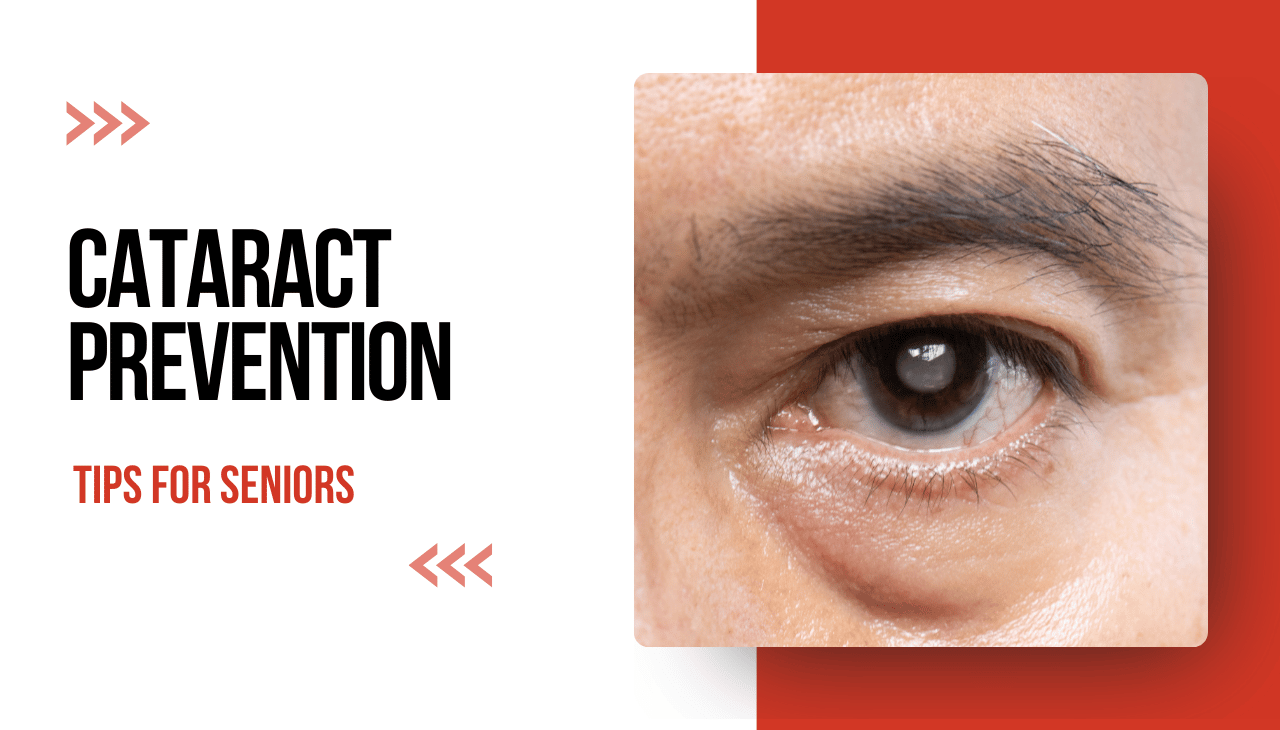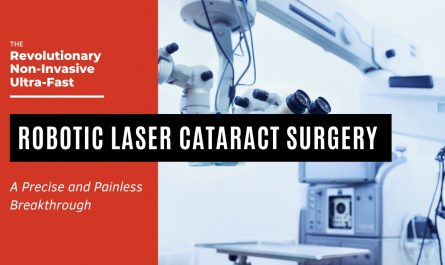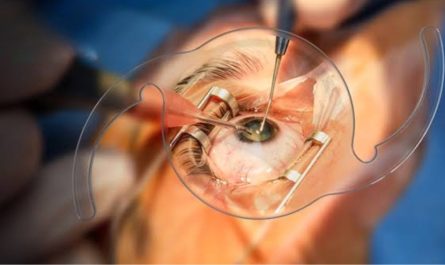Cataracts are one of the most common age-related eye conditions affecting seniors. They develop gradually and can lead to blurry vision, sensitivity to light, and difficulty with night vision. While cataracts are not entirely preventable, there are several ways to delay their onset and protect your vision as you age.
This blog covers practical and medically supported tips to help seniors reduce their risk of cataracts. We will explore lifestyle changes, nutrition, eye care habits, and regular check-ups to maintain healthy vision.
Understanding Cataracts
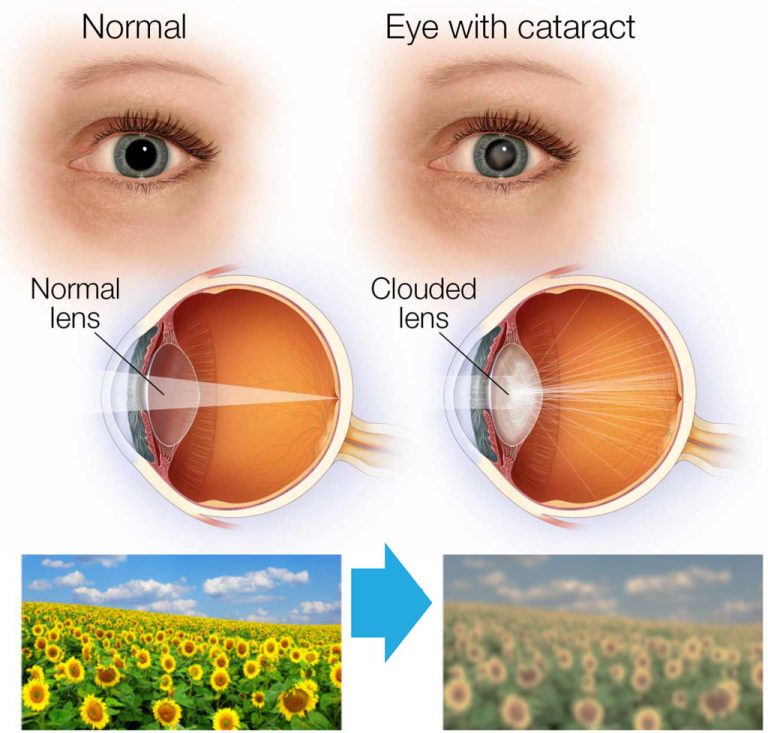
Cataracts occur when the lens of your eye becomes cloudy. This cloudiness affects how light enters your eye, leading to reduced vision. Cataracts can develop in one or both eyes, but they don’t spread from one eye to the other.
Key Facts:
- Type: Age-related cataracts are the most common.
- Progression: Usually slow and painless.
- Impact: Affects reading, night driving, and color perception.
Cataracts are not a disease; they are a natural part of aging, but lifestyle and health choices can influence their development.
Common Causes, Symptoms & Concerns
Causes
- Aging: Natural changes in eye proteins.
- UV Exposure: Prolonged sunlight without protection.
- Smoking: Damages eye tissue and accelerates aging.
- Diabetes: Increases the risk of cataract formation.
- Steroid Medications: Long-term use may contribute to clouding of the lens.
- Eye Injuries: Past trauma can cause early cataracts.
Symptoms
- Blurred or dim vision
- Sensitivity to light
- Halos around lights
- Difficulty seeing at night
- Frequent changes in eyeglass prescriptions
Concerns
- Reduced independence in daily tasks
- Increased risk of falls
- Delayed diagnosis may lead to complications
Best Practices to Prevent Cataracts
While cataracts can’t always be prevented, these steps may slow their development:
1. Protect Your Eyes from UV Rays
- Wear sunglasses with 100% UV protection.
- Use a wide-brimmed hat outdoors.
2. Eat Eye-Healthy Foods
- Include green leafy vegetables, citrus fruits, and fish rich in omega-3.
- Maintain a balanced diet high in antioxidants.
3. Quit Smoking
- Reduces toxin exposure to the lens.
- Supports overall eye and cardiovascular health.
4. Control Medical Conditions
- Manage diabetes with proper diet and medication.
- Monitor blood pressure and cholesterol levels.
5. Regular Eye Exams
- Early detection helps monitor cataract progression.
- Eye doctors can suggest lifestyle changes before surgery is needed.
6. Limit Alcohol
- Heavy drinking is linked to higher cataract risk.
- Stick to moderate levels or avoid entirely.
Additional Insights for Seniors
Keep Your Eyes Active
- Read, solve puzzles, and engage in hobbies to stimulate vision.
Stay Hydrated
- Dehydration can impact the eyes. Drink sufficient water.
Know Your Family History
- Genetic factors may increase cataract risk. Share this info with your doctor.
1. Prioritize Regular Eye Exams
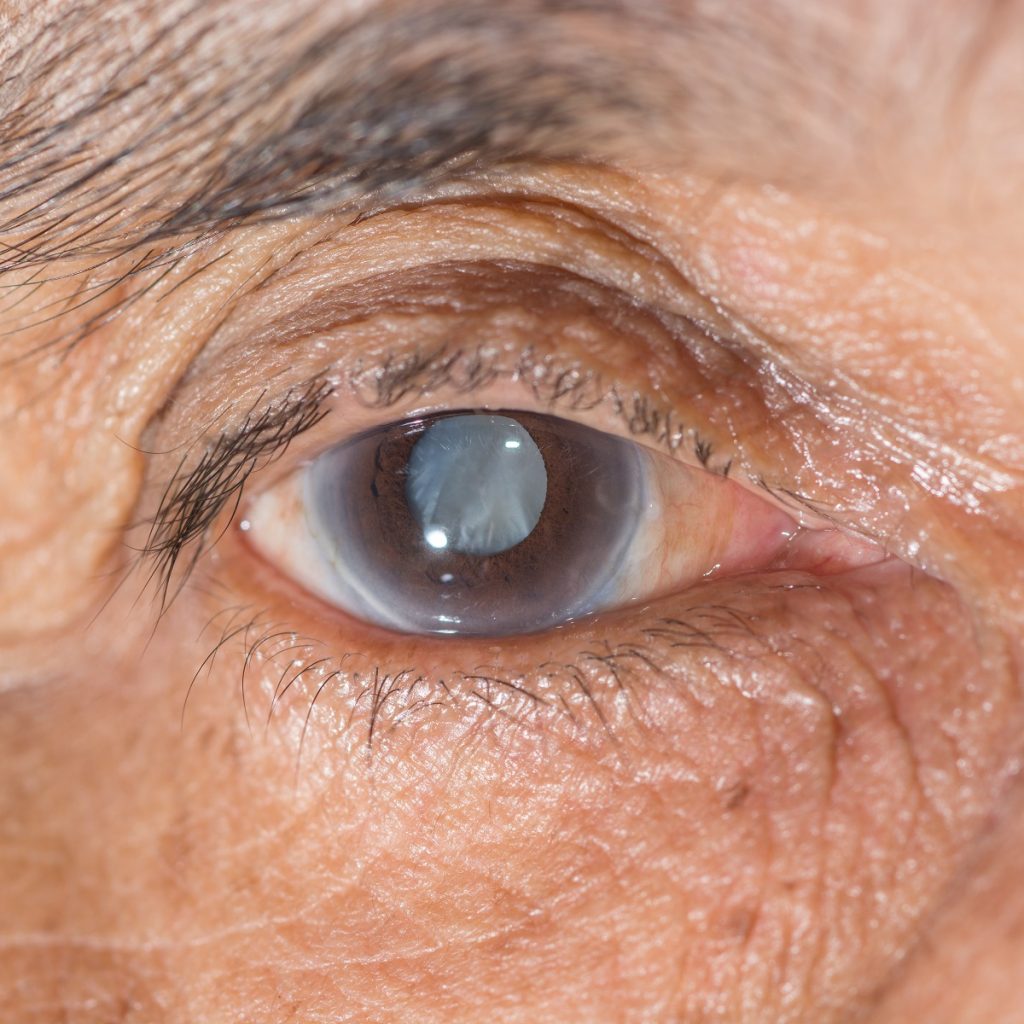
- Schedule a comprehensive eye check-up every year.
- Early detection can help monitor the development of cataracts.
- Your eye doctor can also identify other age-related eye conditions like glaucoma or macular degeneration.
2. Protect Your Eyes from UV Rays
- Always wear sunglasses that block 100% of UVA and UVB rays.
- Use a wide-brimmed hat when outdoors to reduce sun exposure.
- Avoid direct sunlight during peak hours (10 AM to 4 PM).
3. Manage Chronic Health Conditions
- Keep diabetes, high blood pressure, and cholesterol under control.
- Follow your physician’s advice and take prescribed medications.
- Poorly managed chronic conditions can increase cataract risk.
4. Maintain a Balanced Diet
Include these nutrients in your diet:
- Vitamin C – found in citrus fruits, strawberries, and bell peppers.
- Vitamin E – found in almonds, sunflower seeds, and spinach.
- Lutein and Zeaxanthin – found in leafy greens like kale and broccoli.
- Omega-3 Fatty Acids – found in flaxseeds and fatty fish like salmon.
5. Quit Smoking
- Smoking increases oxidative stress on the eye lens.
- It damages the proteins in the lens, speeding up cataract formation.
- Quitting can significantly reduce your risk.
6. Reduce Alcohol Consumption
- Excessive alcohol intake can dehydrate the eyes and damage lens proteins.
- Stick to recommended limits (one drink per day for women, two for men).
7. Avoid Eye Injuries
- Use protective eyewear when working in the garden, kitchen, or while doing repairs.
- Trauma to the eye can lead to traumatic cataracts.
8. Manage Screen Time and Eye Strain
- Follow the 20-20-20 rule: Every 20 minutes, look at something 20 feet away for 20 seconds.
- Use blue-light filters on screens.
- Ensure adequate lighting while reading or working.
Cataract Risk Factors vs. Preventive Actions
| Risk Factors | Preventive Measures |
| Prolonged UV exposure | Wear UV-blocking sunglasses |
| Smoking | Quit smoking completely |
| Poor diet | Eat antioxidant-rich foods |
| Diabetes | Control blood sugar levels |
| Eye injuries | Use protective eyewear |
| Alcohol abuse | Limit alcohol intake |
Introduction for Consultation
Laxmi Eye Hospital is one of the largest and most trusted eye care centers in Mumbai. With over 30 years of excellence in eye care, the hospital is known for its experienced eye doctors and transparent treatment approach.
The institute offers comprehensive diagnostic and treatment services for Cataracts, LASIK, Glaucoma, Retina issues, and Pediatric Ophthalmology at four accessible locations: Panvel, Kharghar, Kamothe, and Dombivli. Laxmi Eye Institute is also home to India’s leading cataract surgical training programs and specialty fellowships.
The team includes expert ophthalmologists trained in advanced techniques like Phacoemulsification and Bladeless LASIK. Whether you’re seeking specs removal, treatment for diabetic eye conditions, or corneal disease management, Laxmi Eye Hospital provides complete care under one roof.
Clinic Locations & Appointment Details
- Laxmi Eye Clinic (Dombivli) 1st Floor, SS Business Park, Gharda Circle, Azde Gaon, Dombivli East, Mumbai, Maharashtra 421201
- Laxmi Eye Clinic (Kharghar) Office 108, 109 and 110, 1st Floor, Anant CHS, Plot 31, Sector 04, Kharghar, Navi Mumbai, Maharashtra 410210
- Laxmi Eye Hospital & Institute (Panvel) Mulla Hamid Rd, Old Panvel, Navi Mumbai, Maharashtra 410206
- Laxmi Eye Institute (Kamothe) Shop No 26/27, Pratik Gardens, Sector 34, Near ICICI Bank, Kamothe, Navi Mumbai, Maharashtra 410209
To book an appointment, call or visit the nearest branch. Walk-ins are also accepted.
FAQs
1. Can cataracts be completely prevented?
Cataracts can’t always be avoided, but healthy lifestyle choices can delay their development and reduce risk.
2. At what age do cataracts usually start?
Most cataracts begin developing after age 60, but symptoms may not appear until later.
3. Do cataracts cause blindness?
If left untreated, cataracts can severely impair vision and lead to blindness. Surgery is highly effective at restoring sight.
4. How do I know if I have a cataract?
Common symptoms include cloudy vision, light sensitivity, faded colors, and difficulty seeing at night.
5. Is cataract surgery safe for seniors?
Yes, it is a safe and commonly performed procedure with a high success rate.
6. How long is the recovery after cataract surgery?
Most people experience improved vision within a few days and recover fully in 4-6 weeks.
7. Can diet really affect eye health?
Yes. A diet rich in antioxidants and vitamins supports eye health and may delay cataract formation.
8. Is cataract surgery covered by insurance?
Many insurance plans cover the cost of cataract surgery. Check with your provider for specifics.
Conclusion
Preventing cataracts involves a mix of healthy habits, proper nutrition, regular eye check-ups, and eye protection. While aging is inevitable, you can take practical steps to delay or reduce the impact of cataracts on your vision.
If you or a loved one notice any changes in vision, don’t delay in seeking professional help. Laxmi Eye Hospital’s dedicated team is here to guide you with personalized care.
Protect your vision—because clear sight leads to a better quality of life at every age.

